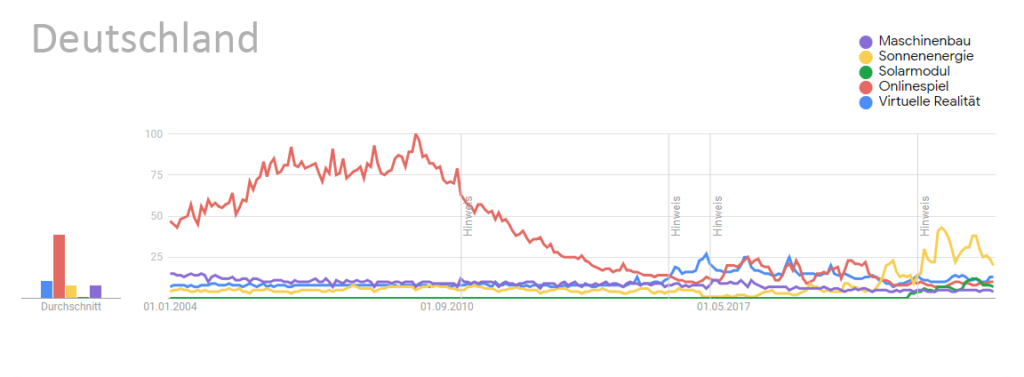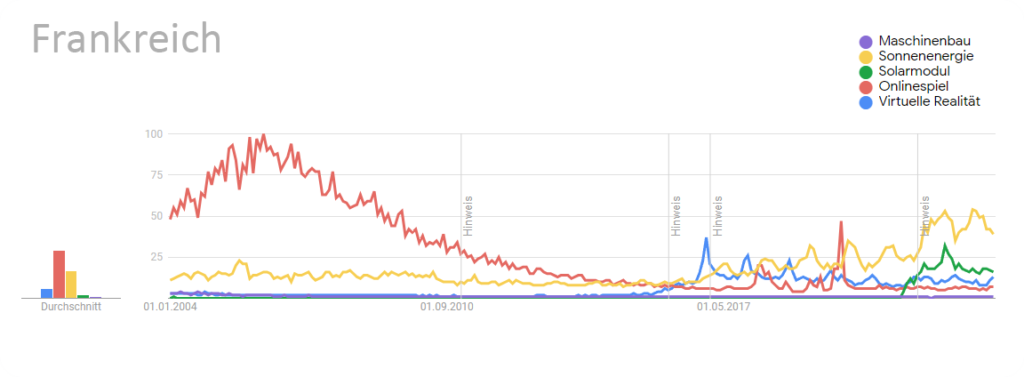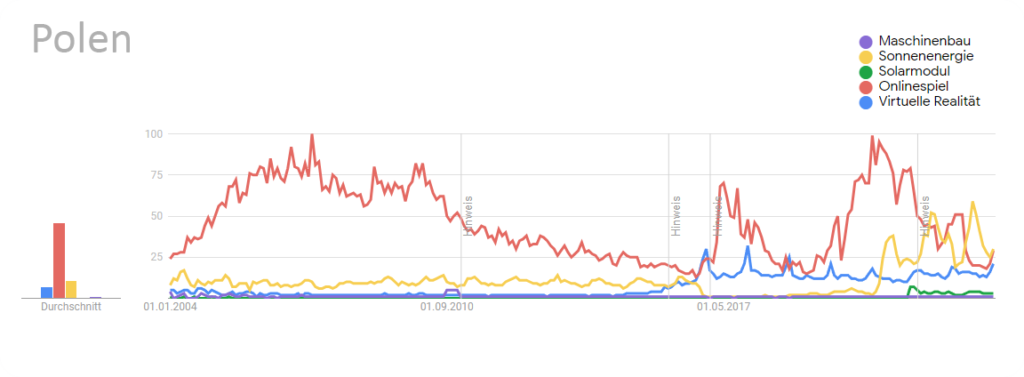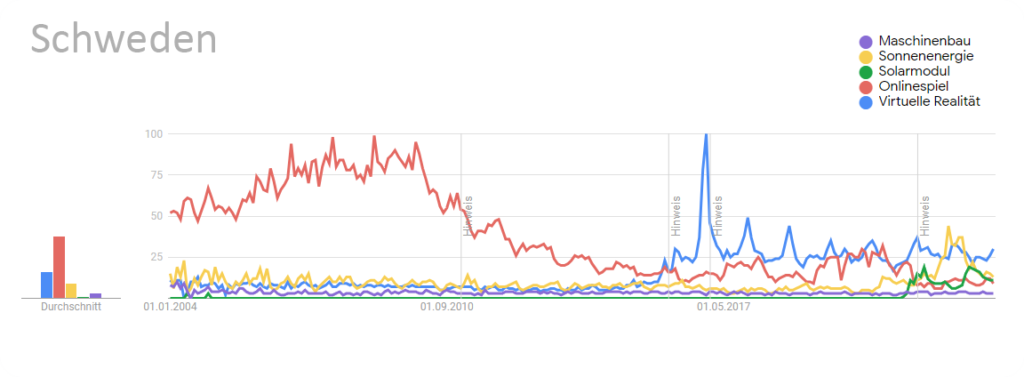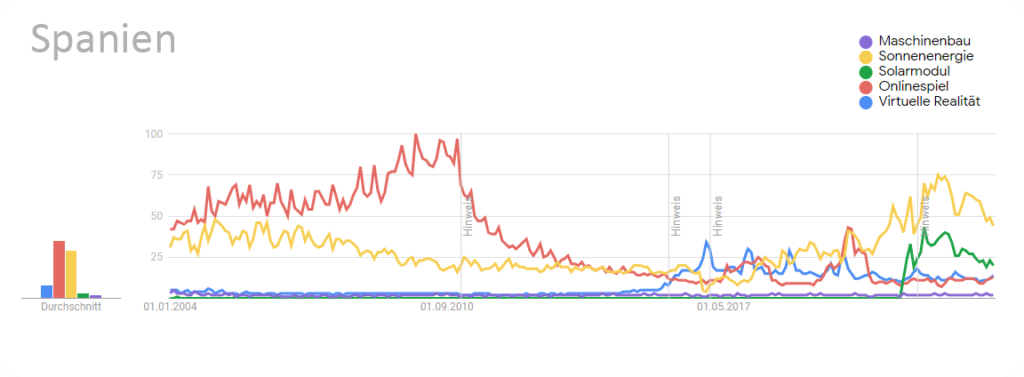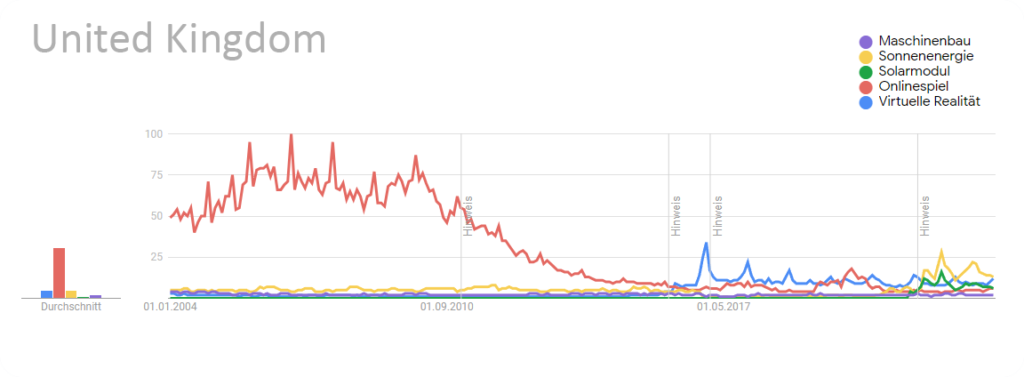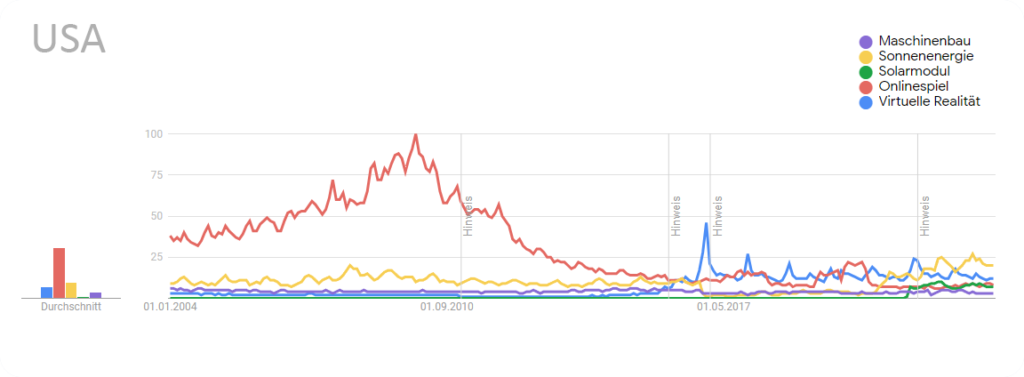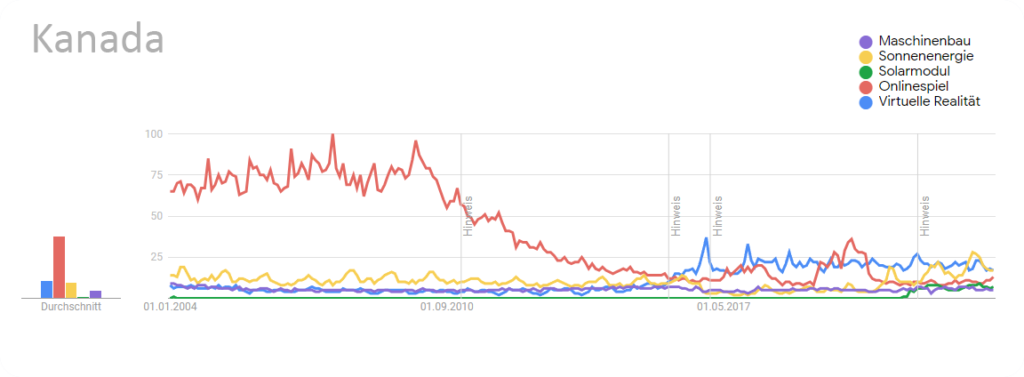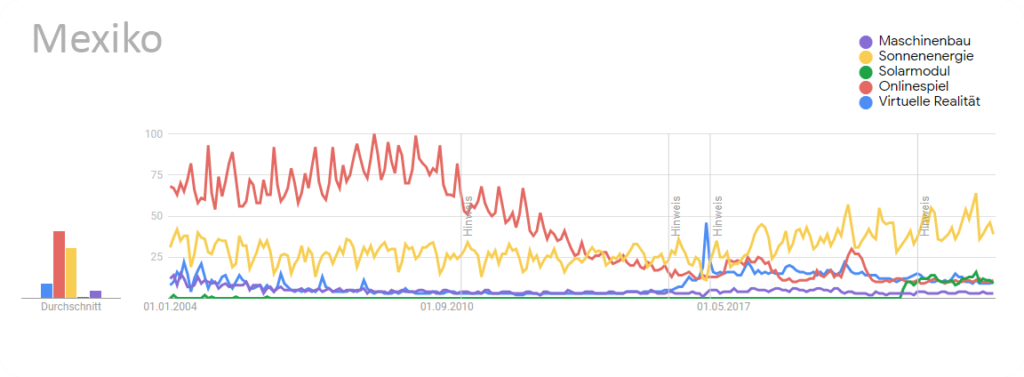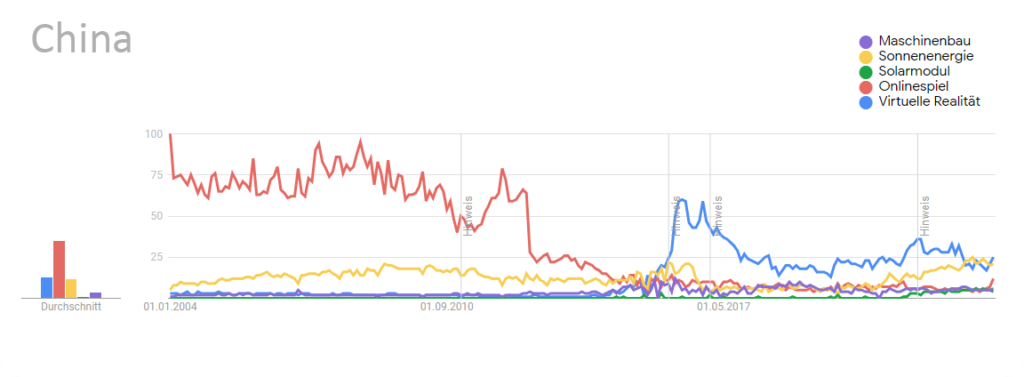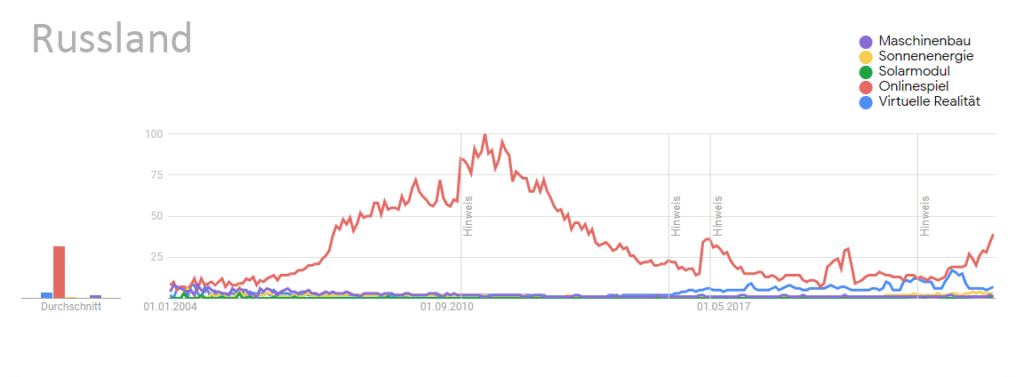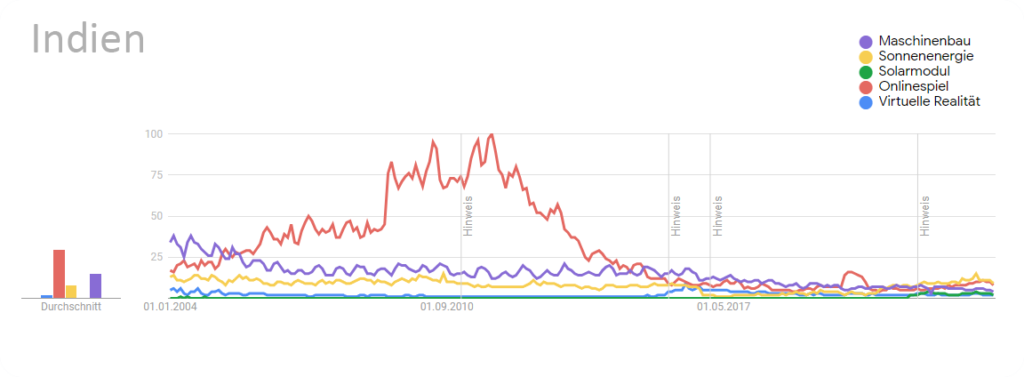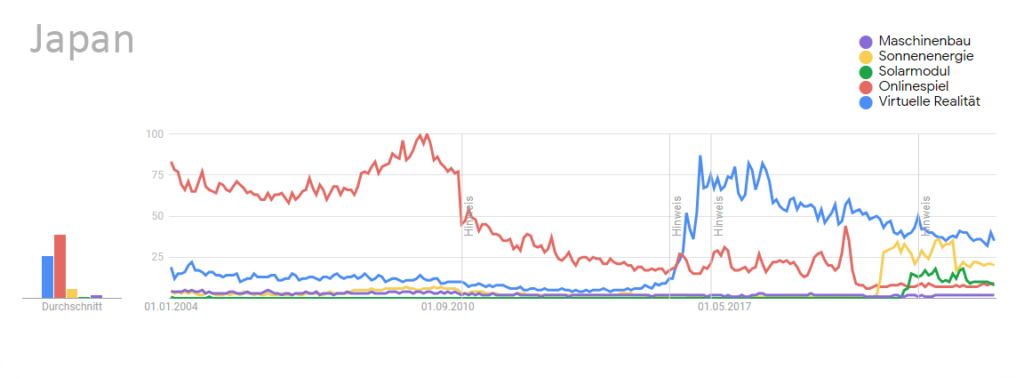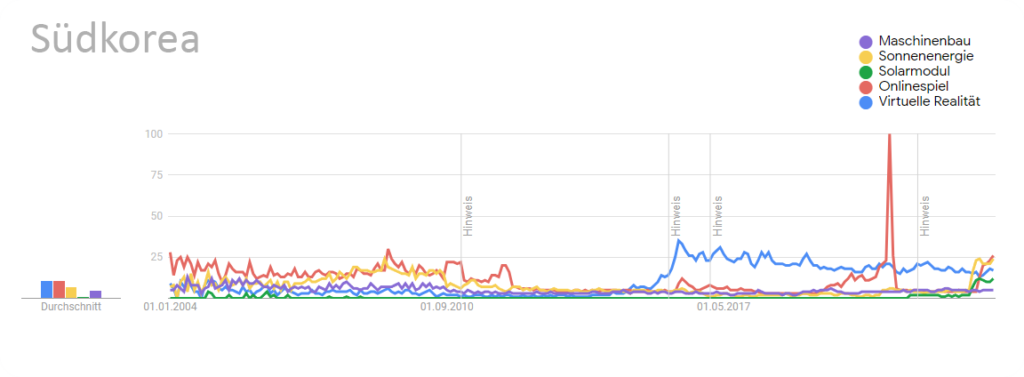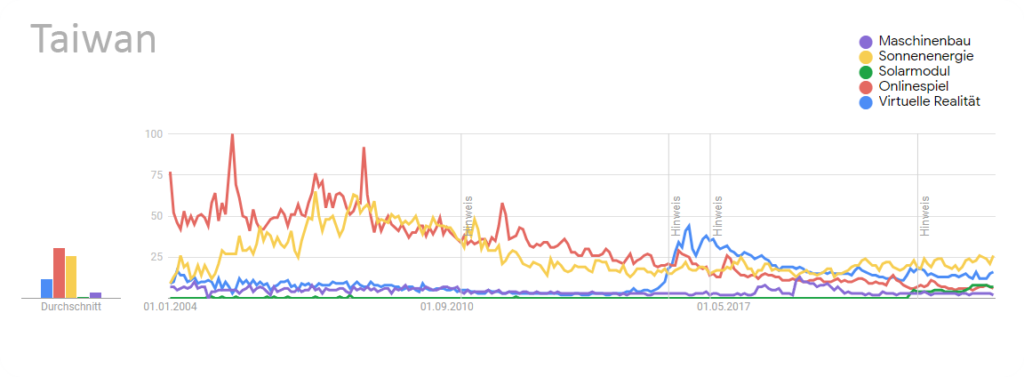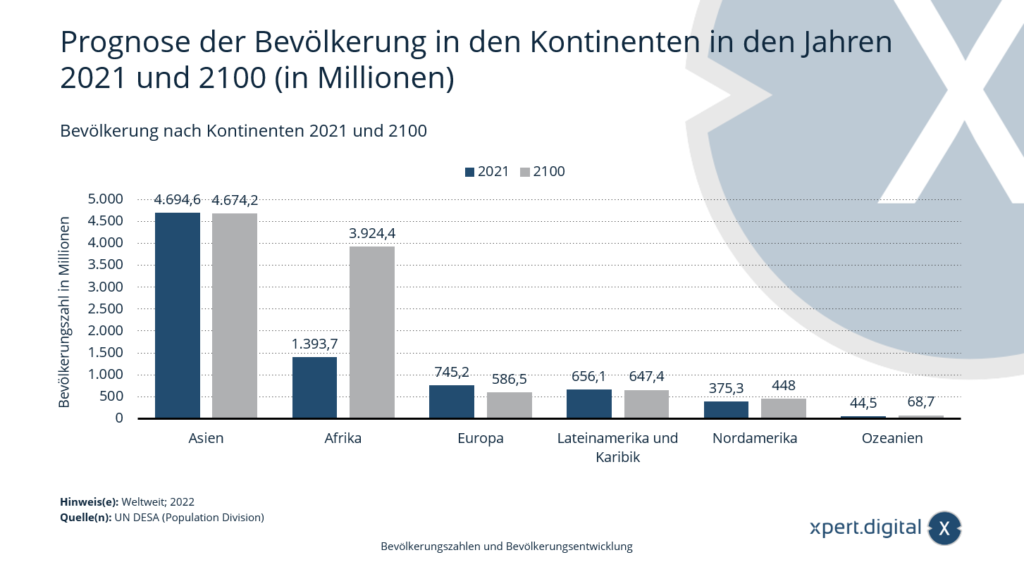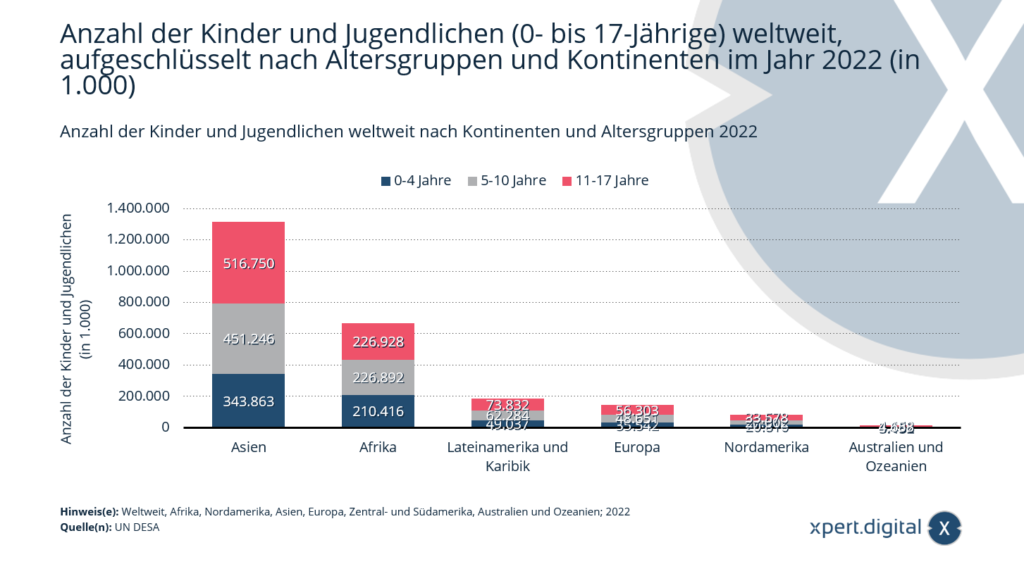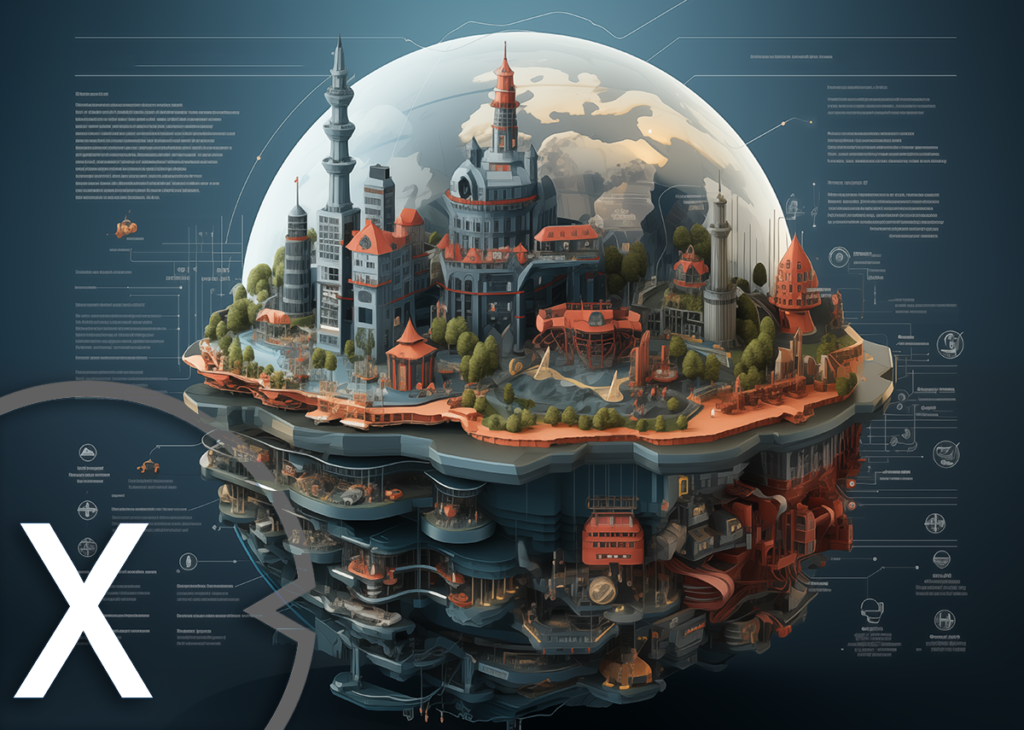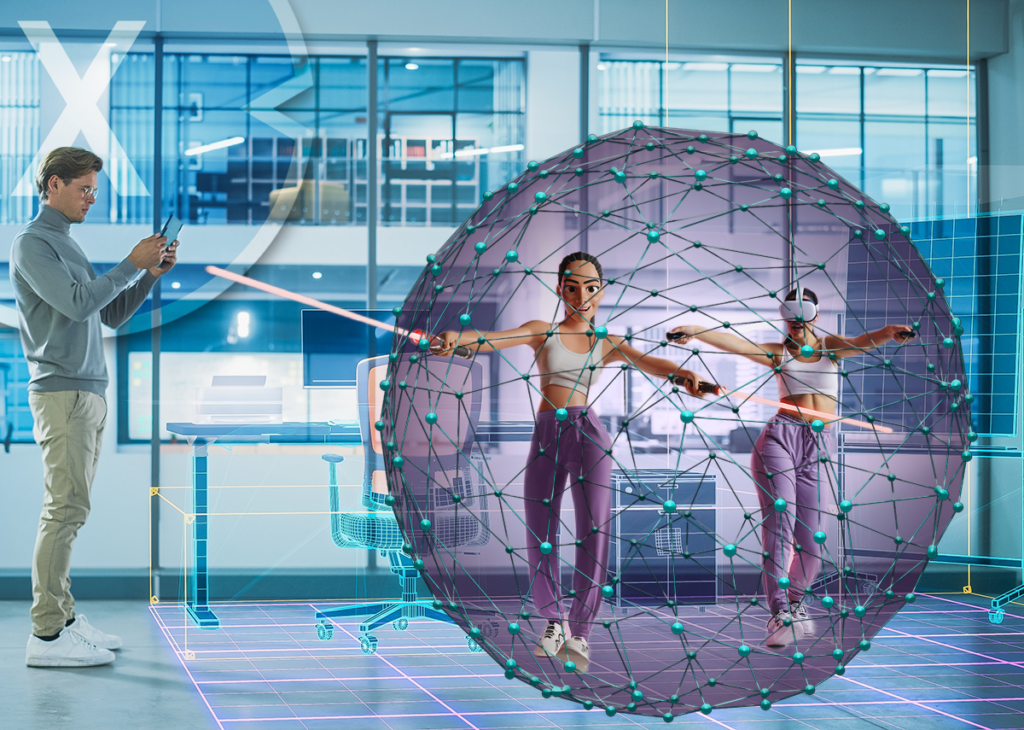Analysis: Metaverse Top or Flop? Here are the numbers that show the consumer and industrial metaverse is coming!
Language selection 📢
Published on: November 8, 2023 / update from: November 28, 2023 - Author: Konrad Wolfenstein

AI & XR 3D Rendering Machine: Global Metaverse Network Community – Consumer and Industrial Metaverse are coming – Image: Xpert.Digital
🌐📉 Trends and differences are the challenges - data quality and AI alone are not the key to metaverse analysis 🧐🚀
🌐 Global developments and AI
In a world characterized by increasing networking and digitalization, new horizons and challenges are opening up for states, companies and individuals alike. Evaluating and comparing developments in different countries and regions can provide information about trends, progress and differences in the global context. The role of artificial intelligence (AI) is of particular interest in this context, as it serves as both a tool and an indicator of progress.
📊 Quality and comparability of data
The complexity of direct comparisons in a globalized world is enormous. Although AI systems are capable of processing immense amounts of data, they reach their limits when the data is incomplete, inconsistent or misleading. The quality and comparability of data are crucial because AI can only be as precise as the information available to it. Missing or incorrect data can lead to divergent conclusions and results, undermining the reliability of AI-based analysis. AI systems therefore do not always generate consistent results and should be viewed as decision aids rather than definitive sources.
🌍 Regional considerations and the metaverse
As part of our analyzes with Xpert.Digital, we focused on various topics that are characteristic of each country. The division into American, European and Asian countries serves as a framework for comparing the development indicators. However, it is important to consider the specific economic, political and social contexts, which may be different in each region and country.
🏭 Industrial Metaverse vs. Consumer Metaverse
The Industrial Metaverse shows that Western countries, particularly the United States and the European Union, are leaders in this area. These regions benefit from their advanced industrial infrastructure, technological expertise and investments in research and development. Companies in these countries are integrating the metaverse to optimize production processes, accelerate product development and create personalized customer experiences. They are experimenting with virtual reality (VR) and augmented reality (AR) for training and simulations to reduce costs and increase efficiency.
In contrast, the consumer metaverse in Asian countries, particularly in technology hubs such as South Korea and Japan, is increasingly focused on the end consumer. There, technologies such as VR and AR are already widespread in the entertainment industry and retail, which is a sign of rapid adoption of new technologies by consumers. The Asian consumer metaverse benefits from high internet speeds, smartphone proliferation, and a cultural context that values digital innovation and gaming.
🌐 Diverse strategies and challenges
The different approaches and stages of development of the Metaverse in these regions reflect a variety of strategies and objectives. In the Western world, the Industrial Metaverse is seen as a means of increasing productivity and ensuring competitiveness in the global market. Here the metaverse plays a key role in the digitization of the industry and the creation of new business models. In Asia, however, the consumer metaverse is emerging as a dynamic field of social interaction and consumption that is redefining the way people communicate, play and shop.
🔒 Challenges and regulation
However, implementing the Metaverse is not without challenges. Privacy, cybersecurity and ethical issues are just some of the issues that need to be resolved to realize the full potential of this technology. Furthermore, the digital divide between different population groups is a significant hurdle that needs to be overcome to ensure an inclusive digital future.
🌐 Responsible development and AI
Ultimately, it is crucial that developments in the metaverse are accompanied by a transparent, responsible and regulated framework. It is necessary to establish international standards that ensure both the protection of consumers and the promotion of innovation. In this way, the Metaverse can serve as a force that not only transforms the economy, but can also bring about positive social and cultural change.
🤖 The role of AI
The role of AI is becoming increasingly central in this process, as it can help analyze complex data and predict trends that are important for strategic planning. However, we must remember that AI is merely a tool whose effectiveness depends on the quality of the input data and human understanding of its outputs. In the evolving world of the Metaverse and beyond, it is therefore essential that we view and use AI with a critical but also visionary perspective.
📣 Similar topics
- 🌐 The World of the Metaverse: Trends and Challenges
- 💡 Artificial intelligence in the metaverse: opportunities and risks
- 🌍 Global comparisons: Metaverse developments in different regions
- 🏭 The Industrial Metaverse: Innovations in Production
- 👾 The Consumer Metaverse: Digital Entertainment and Shopping
- 🔒 Challenges in the Metaverse: Data Protection and Cybersecurity
- 🌐 Metaverse and Culture: New Forms of Social Interaction
- 🌟 The Role of AI in the Metaverse: Predictions and Strategies
- 🌏 International standards for the Metaverse
- 🚀 The Metaverse as a driver for business and society
#️⃣ Hashtags: #Metaverse #ArtificialIntelligence #Comparison #Innovation #Data Protection
🌐📉 Worldwide trends and developments on the comparison topics: mechanical engineering, solar energy, solar modules, online games and virtual reality 📈
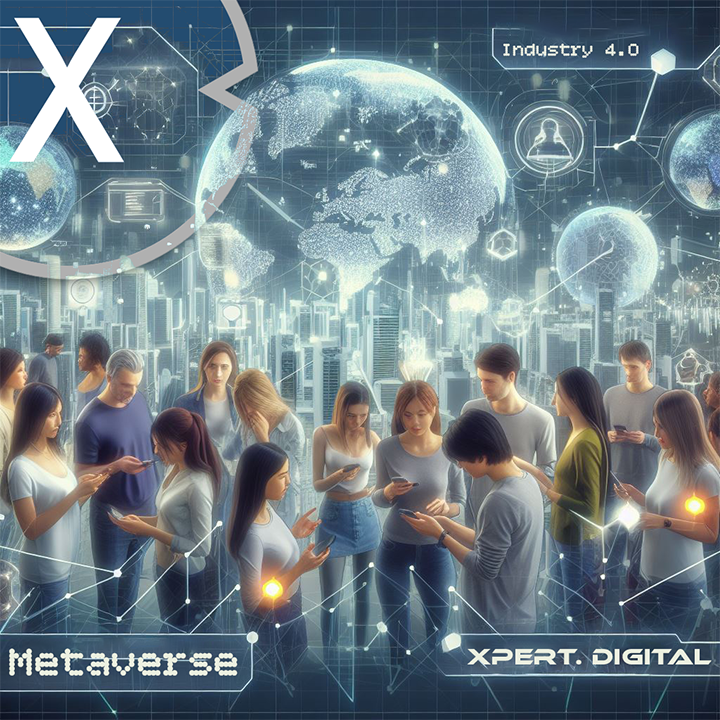
Global Metaverse Network: Worldwide trends and developments on comparative topics – Image: Xpert.Digital
🌍 In our development comparison in the different countries, we also looked at various topics in which we at Xpert.Digital are familiar and active. We have selected different countries from the respective regions. It is not complete because reliable and comparable data was not available. We have divided the regions into American countries, European countries and Asian countries. Important to note: The focus of our analysis is to find confirmation that in the western countries, i.e. America and the EU, the industrial metaverse is developing more and the consumer metaverse is developing in the Asian countries.
🌐 B2B topics are generally less attractive compared to B2C topics. Since this interests a much smaller target group, for example mechanical engineering (purple line). Nevertheless, it helps to classify the attractiveness of other topics.
☀️ But it is very easy to see that the topic of “solar energy” (yellow lines) in the European and American countries has far greater awareness and interest than the Asian countries. The exceptions are Sweden and Taiwan.
🌍 In an ever-changing global economic landscape, the interests and priorities of business-to-business (B2B) and business-to-consumer (B2C) markets are a complex phenomenon influenced by various factors such as culture, technological advances and environmental awareness. While B2B markets, such as mechanical engineering, often address a more specific and smaller target group, trends show that within the B2C sphere, certain topics - such as solar energy and digital gaming culture - are perceived and evaluated differently.
🌱 There is an increased awareness and interest in renewable energy in European and American countries, with the focus on solar energy. This reflects the increasing environmental awareness of these societies, driven by growing concern about climate change and the associated pressure for more sustainable ways of living and producing. In contrast, Asian countries show relatively lower interest in solar energy, which can be attributed to various economic and cultural factors, such as different energy infrastructure or a different strategic direction in national energy policy.
🎮 When it comes to digital entertainment and technology, the concept of the Metaverse stands out. This is considered an area with high potential in the gaming sector. The Metaverse, a collective virtual shared space created by the convergence of physically persistent virtual reality and the Internet, offers new dimensions of interaction and experience for both game developers and consumers. In European countries, interest in online gaming and virtual reality are very close, but with a clear exception in Sweden, where interest in virtual reality exceeds fascination with online gaming.
🎮 Asia, on the other hand, presents itself as a region that has an affinity for playful elements, with countries such as Taiwan and South Korea showing almost equal interest in virtual reality and solar energy. This suggests an exciting connection between technological progress and environmental awareness, with these countries potentially being seen as pioneers in the integration of sustainable technologies into the virtual world.
🇷🇺 Russia shows a very strong interest in online gaming, far ahead of other topics such as virtual reality and solar energy. This could be partly explained by the widespread availability of Internet access and a strong online gaming culture among the Russian population. In contrast, Japan, a nation often associated with technological innovation, shows strong interest in virtual reality, while solar energy and online gaming receive less attention.
🇨🇳 China represents another interesting case, with virtual reality currently ahead of solar energy and online gaming coming in third, with interest in digital gaming increasing recently. This could be due to the rapid development of the technology industry in China and the increasing adoption of VR technologies in the entertainment industry.
🌏 These global differences in interest in solar energy, online gaming and virtual reality reflect not only the different stages of technological development and environmental priorities,
but also cultural preferences and socio-economic factors that shape the market landscape. Integrating sustainability into corporate strategy is increasingly seen as an important competitive advantage. Companies active in the areas of virtual reality and renewable energies are faced with the challenge of finding innovative ways to not only make these technologies marketable, but also to put them at the service of society.
🔗 The interaction between the virtual and real world, especially in the context of online games and the metaverse, offers unique opportunities for education, communication and social interaction. These technological developments could also open new avenues for the spread and promotion of renewable energy by increasing user awareness and engagement.
🌎 Finally, it shows that the dynamics of the global markets with regard to B2B and B2C topics require a multi-faceted view
in which regional preferences and development stages must be taken into account. The balance between technological progress, economic success and sustainable development remains a central challenge for companies and societies worldwide.
📚 Summary
- In general, the Metaverse opportunities are ranked highest in the gaming sector.
- While topics relating to online games and virtual reality are very closely related in European countries, things are a little different in Sweden. Here, interest in topics relating to virtual reality is much higher than in topics relating to online games.
- In contrast, the Asian countries seem to be “more playful”. It is interesting that in Taiwan the virtual reality of solar energy is very close and seems more interesting compared to online game. In South Korea, the topic of online game and solar energy are very close together, closely followed by virtual reality.
- In Russia, on the other hand, the topic of online games is undefeated, until virtual reality and then the topic of solar energy follow.
- It's different in Japan, where virtual reality is at the forefront. The topic of solar energy follows far behind until online games become interesting further back.
- In China too, virtual reality is currently ahead of solar energy. In third place are online games, which have attracted more interest recently.
📣 Similar topics
- 🌍 Global trends in B2B and B2C markets
- ☀️ Solar energy: differences in interests worldwide
- 🕹️ Metaverse: The Future of Gaming
- 🇪🇺 Europe and America: Focus on renewable energies
- 🌐 Virtual Reality: Regional Preferences
- 🎮 Gaming in Russia: Preference for online games
- 🇯🇵 Japan: Virtual reality in the foreground
- 🇨🇳 China: Virtual reality and technology boom
- 🌱 Sustainability in corporate strategy
- 🌎 The interaction of the virtual and real world
#️⃣ Hashtags: #B2B #B2C #SolarEnergy #Metaverse #RenewableEnergy #VirtualReality #Gaming #Sustainability #Technology #GlobalTrends
📊 Numbers & graphics: Google Trends analyzes in European countries: mechanical engineering, solar energy, solar modules, online games and virtual reality 📈
Germany: Google Trends Development comparison of various topics in Google searches – Image: Google
🌐📉 Trends and development in the American countries: mechanical engineering, solar energy, solar module, online gaming and virtual reality
🌐 The Metaverse in Asia: Opportunities and Challenges

AI & XR 3D Rendering Machine: Asian Metaverse Network Community – Consumer Metaverse – Image: Xpert.Digital
The Metaverse – a digital world that plays an ever-increasing role in our real existence. The consumer metaverse in particular, which includes playful elements, seems to have excellent prospects for success in Asia. This assumption is not unfounded, considering that Asia is home to almost 60% of the world's population. In order to understand the dimensions of this phenomenon and the associated opportunities and challenges, a look at the demographic and cultural landscape of Asia is essential.
Suitable for:
- Asia's Metaverse Continues to Grow, From Digital Cities to Gaming - Asia's Metaverse Leads the World | Youth driving force
- Key differences in Metaverse development in Asia and the West – Metaverse approach, boom, dynamics and innovations
🌍 Asia's diversity and size
In fact, Asia, the largest continent on earth, is home to a wide variety of people with different lifestyles, traditions and socioeconomic backgrounds. If you compare the population distribution worldwide, the differences are particularly noticeable: 17.8 percent of the world's population is in Africa, 9.3 percent in Europe, 8.2 percent in Latin America, 4.7 percent in North America and just 0.6 percent in Australia and Oceania - these numbers show the dimension in which Asia stands out from other continents.
🧒 The youth in Asia
But Asia doesn't just lead in absolute numbers - it is also home to an impressive number of children and young people. With around 1.3 billion young people between the ages of 0 and 17, Asia is home to more minors than all other continents combined, totaling around 1.08 billion minors. This young, dynamic population is predestined to adapt new technologies and digital trends - including the Metaverse.
🎮 The Metaverse for the young generation
The consumer metaverse offers a wealth of opportunities, especially for the younger generation. It's a world where gaming, social interaction and virtual experiences are not only possible but commonplace. For a population that grew up with smartphones and the Internet, the step into a virtual life is not a major hurdle. The playful approach makes diving into this new world attractive and accessible.
📚 Culture and storytelling
However, it is not just the affinity for technology that makes the Metaverse so successful in Asia. The diverse cultures of Asia have a long tradition of storytelling and mythology that finds a modern platform through the Metaverse. From classic fairy tales to contemporary comics and games, the Metaverse opens a space in which these stories can be reimagined and experienced.
💼 Economic prospects
The economic prospects arising from the metaverse in Asia are immense. Companies from around the world are already investing in the infrastructure of the digital space and in the development of products and services specifically designed for the metaverse. From virtual fashion to digital real estate, markets are emerging that were previously unthinkable. These new industries not only offer economic opportunities, but also create jobs for the young, technology-savvy population.
📖 Education in the Metaverse
Education is another sector being revolutionized by the metaverse. Digital classrooms can break barriers and make education more accessible. Particularly in rural or remote areas of Asia, the Metaverse could help close the education gap and provide children and young people with access to knowledge and learning resources, regardless of where they live.
🔐 Security and privacy
But the metaverse also raises questions of security and privacy. As in any digital environment, mechanisms must be developed and implemented to protect users, especially younger ones. Data protection, cybersecurity and the creation of safe space on the Internet are essential for the sustainable development of the Metaverse in Asia.
🌏 Inclusion and equality
There is also the risk of the digital divide – while the more technologically advanced countries of Asia, such as South Korea, Japan or Singapore, could move forward quickly, other regions may be left behind. Equitable development and access for all is critical to ensuring the Metaverse provides an inclusive experience for all Asians.
🚀 Asia's role in the digital metaverse
The Metaverse will play a significant role in the future of Asia. With a young, technology-savvy population, a rich cultural history, and a rapidly growing economic sector, the Metaverse has the potential to become an integral part of daily life. Exactly how this will play out remains to be seen, but one thing is certain: Asia will play a major role in the digital future that the Metaverse promises.
📣 Similar topics
- 🌐 The Metaverse Revolution in Asia
- 🎮 The Consumer Metaverse: A World for Youth
- 📚 Education in the Metaverse: The Future of Learning
- 💼 Economic opportunities in the digital space
- 🔐 Security and privacy in the Metaverse
- 🌏 Asia and the Metaverse: A Cultural Fusion
- 📈 The growing importance of the Metaverse in Asia
- 🌐 The Metaverse as a bridge to the world
- 🏫 Metaverse and Education: An Opportunity for Remote Regions
- 🌟 The Metaverse as a motor for innovation
#️⃣ Hashtags: #Metaverse #Asia #Digitalization #Education #Economy #Security
🌐🤖 Metaplanet: Challenges in the Modern World
In order to remain competitive in a world that is increasingly characterized by technological advances, Western countries in particular are faced with the challenge of optimizing their industrial and economic processes. This need is particularly striking in comparison to the Asian markets, which set a benchmark in various sectors through their dynamism and innovative strength. Shrinking populations in some Western countries are further intensifying these pressures, with fewer workers available to support the economy. In this situation, it is becoming increasingly important to rely on automation, robotics and the principles of Industry 4.0 while opening up new markets, such as the Metaverse.
🤖 Automation and its importance
Automation is the key to increasing efficiency in production and service processes. By using intelligent systems, repetitive tasks can be carried out faster, error-free and more cost-effectively. In manufacturing facilities, automation enables near-continuous production, not limited by human limitations such as working hours or physical fatigue. Additionally, automation technologies can be integrated into data analysis and decision-making processes to improve the effectiveness of business strategies.
🤖🤖 Robotics and their diverse applications
Robotics has already established itself as an indispensable tool in modern production lines. Robots not only take on dangerous, dirty or monotonous tasks, but are also capable of carrying out precise and demanding jobs that require high levels of accuracy. Robotics is continually developing and ranges from autonomous vehicles in logistics to service robots in catering and care.
🌐🤖 Industry 4.0 and the digital revolution
The concept of Industry 4.0 describes the fourth industrial revolution, which is driving the digitalization of the manufacturing industry. The core elements are the Internet of Things (IoT), cloud computing, big data and artificial intelligence. These technologies enable machines to exchange data in real time, optimize processes independently and react flexibly to changes. This not only increases efficiency, but also flexibility and individualization of production.
🌐🤖🌌 The potential of the Metaverse
A particularly exciting new field is the Metaverse – a virtual reality in which people can interact, work and trade. The Metaverse offers companies the opportunity to present and sell their products and services in a completely new dimension. It opens up new avenues for marketing and customer service and makes it possible to design customer experiences in innovative ways. The Industrial Metaverse takes this idea and applies it to the industrial sector. Here, engineers and designers from around the world could work together in real time to design and test new products. Virtual prototypes could be developed and optimized at a much earlier stage, reducing time to market and reducing costs. Training and maintenance work could also be carried out via virtual platforms, eliminating travel costs and time.
🌐🤖🌌🚀 Challenges and responsibility
However, it is important to emphasize that these technological changes also bring challenges. Automation and robotics can lead to a change in the world of work in which certain jobs are no longer needed and new skills are required. To manage this transition, education systems must be adapted and lifelong learning promoted to prepare the workforce for the world of work of tomorrow. Investments must also be made in the security of these technologies. The more connected and automated our world becomes, the more vulnerable it could become to cyberattacks. Robust security systems are required to protect critical infrastructure and sensitive data. Finally, despite all the technological progress, we must not forget that ethical issues are becoming increasingly important. The use of AI and automation must be done responsibly, for example to avoid discrimination and ensure transparency.
🌐🤖🌌🚀🤝 The balance between technology and humanity
To survive in a rapidly changing global competitive environment, Western nations must rely on the intersection of advanced technology and human expertise. They must find a balance between implementing high-tech solutions and preserving the human factor, which represents creativity, innovation and ethical behavior. The future will belong to those who understand how to use technology to expand, not replace, human potential.
📣 Similar topics
- Future of automation and robotics
- Industry 4.0: The fourth industrial revolution
- Metaverse: The new dimension of trading
- Industrial Metaverse: Virtual Collaboration in Industry
- The changing world of work: adaptation and lifelong learning
- Security in a connected world
- Ethics in Technology: Responsible Use of AI
- Technology and human expertise in a competitive environment
- Innovation and creativity in the digital era
- The future: Using technology to develop potential
#️⃣ Hashtags: #Automation #Robotics #Industrie40 #Metaverse #IndustrialMetaverse #Working World #Security #Ethics #Innovation #Technology
🗒️ Xpert.Digital: A pioneer in the field of extended and augmented reality

Industrial & B2B Business Metaverse: Reduce costs with XR technology for photorealistic product images (XR 3D rendering machine)
XR technology offers a superior solution for creating photorealistic images and allows companies to free themselves from the expensive fees of external media agencies. It is common knowledge that media agencies charge high costs to create such images as it requires expertise, special software and collaboration with various experts.
More about it here:
We are there for you - advice - planning - implementation - project management
Xpert.Digital - Pioneer Business Development
Smart Glasses & KI - XR/AR/VR/MR industry expert
Consumer metaverse or meta -verse in general
If you have any questions, further information and advice, please feel free to contact me at any time.
I would be happy to serve as your personal advisor.
You can contact me by filling out the contact form below or simply call me on +49 89 89 674 804 (Munich) .
I'm looking forward to our joint project.
Xpert.Digital - Konrad Wolfenstein
Xpert.Digital is a hub for industry with a focus on digitalization, mechanical engineering, logistics/intralogistics and photovoltaics.
With our 360° business development solution, we support well-known companies from new business to after sales.
Market intelligence, smarketing, marketing automation, content development, PR, mail campaigns, personalized social media and lead nurturing are part of our digital tools.
You can find out more at: www.xpert.digital - www.xpert.solar - www.xpert.plus



